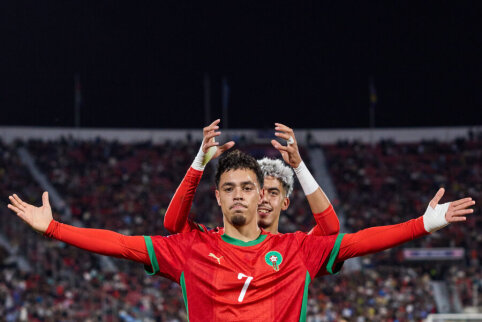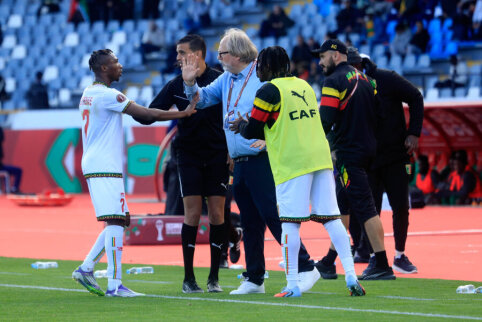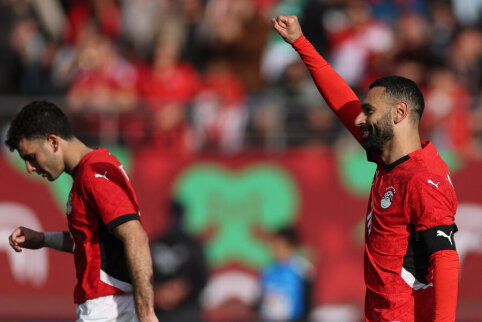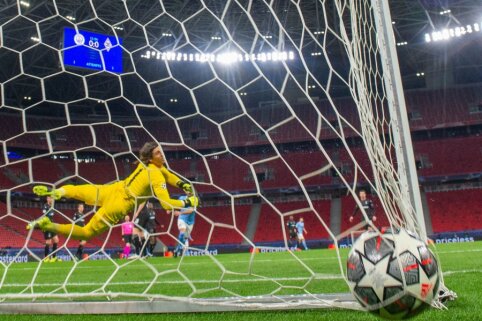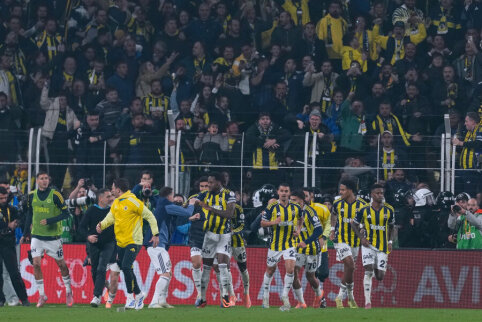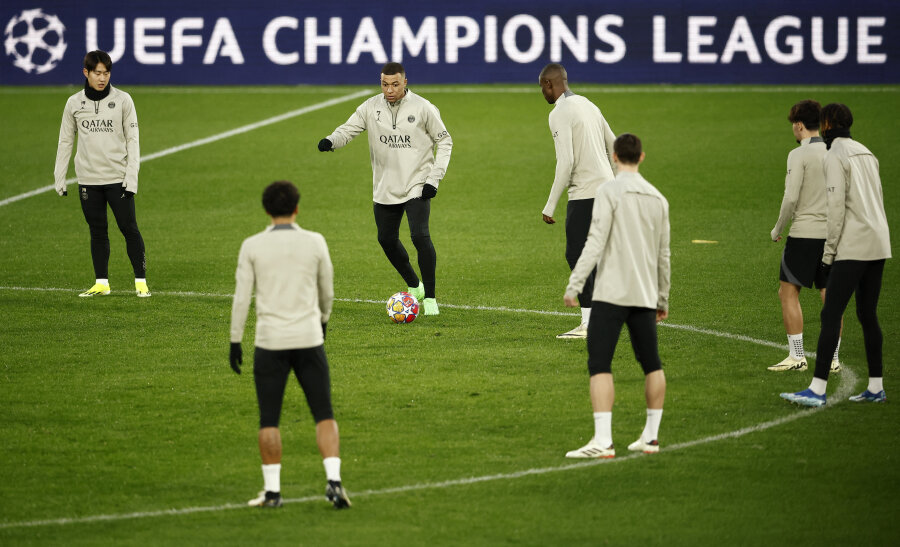 © Reuters
© Reuters
The European international football in the season 2024-25 will enter a new era - the era of 36 teams.
The Champions League on March 4 confirmed that from the 2024-25 season, the format will be completely different. It will be unique in team sports.
Generally
From the 2024-25 season, the format with 8 groups will no longer exist. The Champions League will feature 36 teams, divided into 4 pots of 9 teams each.
Take an example: The team from Munich "Bayern." Through a draw ceremony, they will find out their 8 opponents in the regular Champions League season before the knockout stages. There will be as many as eight opponents, four of which they will have to host at home, and the other four travel to play away matches.
Assessing the current situation in the leagues, the pots for the upcoming season could look like:
Pot 1: "Manchester City," "Bayern," "Real," PSG, "Liverpool," "Inter," "Roma," "Manchester United," "RB Leipzig."
Pot 2: "Barcelona," "Atletico," "Juventus," "Bayer," "Porto," "Benfica," "Arsenal," "Shakhtar," "Borussia"
Pot 3: "Feyenoord," PSV, "AC Milan," "Rangers," "Sporting," "Sparta," "Copenhagen," "Salzburg," "Dinamo"
Pot 4: "Stuttgart," "Brest," "Lille," "Monaco," "Crvena Zvezda," "Bologna," "Aston Villa," "Olympiacos," "Ferencvaros"
In this case, in the initial stage of the Champions League, "Bayern" opponents could be "Monaco" (1), "Bologna" (2), "Sporting" (3), PSV (4), "Shakhtar" (5), "Arsenal" (6), PSG (7), and "Barcelona" (8). One club might face two representatives from another country. It might even happen that "Bayern" plays against "RB Leipzig" or "Stuttgart."
Another example: "Barcelona." They could get PSG (1), "Liverpool" (2), "Atletico" (3), "Bayer" (4), PSV (5), "Sparta" (6), "Olympiacos" (7), and "Monaco" (8) as opponents.
Each club from each pot would have two opponents, known as the "Swiss model."
Interestingly, only the Champions League winners would be guaranteed to be in the first pot. Other clubs would be ranked according to the UEFA coefficient accumulated over 5 years. Previously, only champions were in the first pot, so this somewhat diminishes the significance of the tournament's name.
"Roma" and "RB Leipzig" would enter the Champions League because of the good performances of clubs from the associations of Italy and Germany. These teams hold the 5th position in their leagues.
Knockout Stages
In the knockout stages, two additional matches are played for certain teams.
36 teams will be placed in one tournament table. The first 8 teams will compete for a direct ticket to the quarterfinals, while all others will face an additional knockout phase, similar to what is currently in the Europa League and Conference League.
Teams placed 25th-36th will be eliminated from European competitions that season.
An exciting new era for European club football awaits ?
— UEFA Champions League (@ChampionsLeague) March 4, 2024
Here’s how the #UCL will look from 2024/25 ? pic.twitter.com/mEffFOpX2O
Additional Places
Initially, there were rumors of places in the Champions League being allocated based on historical achievements, such as for clubs like "Manchester United" or "AC Milan." However, the rumors did not come true.
Now it is clear that the 4 additional places are distributed as follows:
Two places to the associations whose clubs have collected the most UEFA coefficient points on average in the past season. Italy and Germany are leading in the 2023-24 season, but England has been catching up. In this season, the additional places would have gone to Italian and English clubs, causing a shift. The top 1-5 positions go to the Champions League, 6-7 to the Europa League, and 8 to the Conference League, provided the local cup winners are among the top 7 strongest clubs.
One place for the association occupying the fifth place in the UEFA rankings. Currently, this is France ("Ligue 1"). With this system, French clubs, through additional selection, can once again have four clubs in the Champions League next season after a long time.
One place reserved for the champions' path in the Champions League qualifiers. This is good news for Lithuania, as it opens up more opportunities for "Panevezys" or another future A League champion. Previously, only the champions of the local leagues would qualify through this path, now five will qualify.
Motives
As everywhere in the world, motives here are driven by larger sums of money. It is obvious that the teams participating in the Champions League will benefit from this new format. Revenues will increase, but fans will not be left out.
The number of matches will increase by more than a third - from 125 to 189 matches per season.
Furthermore, this format guarantees high-profile matches every week. If in recent times there was a lack of "big" matches, this is something that should change in the near future.
Europa and Conference Leagues
The other two valuable UEFA products - the Europa League and Conference League - are also following a similar path.
In the Europa League, the format will be identical, with 36 teams and 8 matches before the knockouts, while in the Conference League, there will be 6 matches instead of 8.
One significant change is that during the UEFA Champions League and Europa League seasons, there will be no relegation to a lower league, which might not necessarily be a bad thing. Some teams no longer saw the point of competing in another tournament after being disappointed in one.
It was previously announced that both the Europa League and Conference League would have a separate round during the season, where in the middle of the week, only those tournaments would take place, thus increasing the popularity of these secondary leagues. This is particularly relevant to the Conference League, which does not have as many viewers or interest.
Guaranteed Club Places in European Associations
For curiosity's sake, after these changes, associations will have the following places in Europe:
1-5 ranking positions: 7 teams guaranteed in Europe (4 from France are in the CL qualifiers)
6th position: 6 teams guaranteed in Europe
7-15 ranking positions: 5 teams guaranteed in Europe (7-10 - one team in the CL group stage)
16-49 ranking positions: 4 teams guaranteed in Europe, including Lithuania
50-54 ranking positions: 3 teams guaranteed in Europe
UPDATE: Race for extra UCL places after Thursday's matches.
— Dale Johnson (@DaleJohnsonESPN) February 22, 2024
⏩ 1 Italy 15.571
⏩ 2 Germany 14.500
-
⏩ 3 England 13.875
⏫ 4 France 13.250
⏬ 5 Spain 13.187
⏩ 6 Czechia 12.750
⏬ 7 Belgium 12.400
Despite the table, England firm faves for top 2.
READ ?https://t.co/vdynlhYfnf
